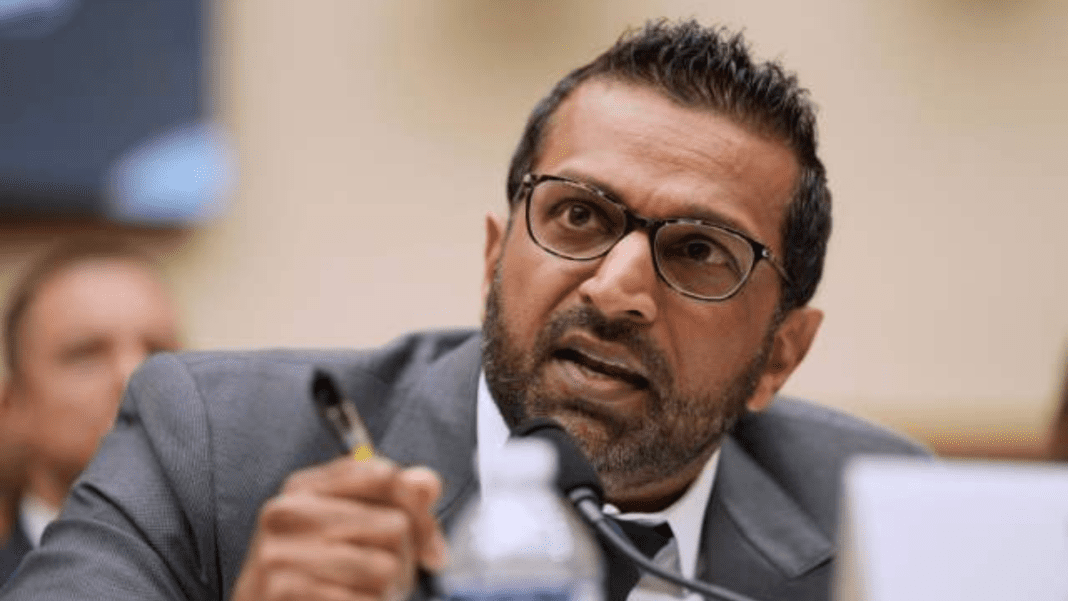In a quiet but important move, FBI Director Kash Patel secretly traveled to China last week, marking a new step in the fight against fentanyl, a synthetic opioid that has become the leading cause of drug overdose deaths in the United States.
A Surprise Visit After a Major Fentanyl Breakthrough
According to two people familiar with the trip who spoke to Reuters, Patel’s visit came shortly after a high-level summit between U.S. President Donald Trump and Chinese President Xi Jinping. During that meeting, both leaders announced that they had reached a “consensus” on tackling the fentanyl problem — a major source of tension between the two countries for years.
Sources said Patel flew into Beijing on Friday and stayed for about a day. On Saturday, he met with Chinese officials to discuss law enforcement cooperation and the control of drug precursor chemicals — the substances used to make fentanyl. His trip was not publicly announced by either government and was only revealed in Reuters’ reporting, signaling its sensitive nature.
While the FBI and China’s Ministry of Public Security have not commented, Patel’s sudden appearance in Beijing suggests that Washington and Beijing are quietly stepping up joint efforts to address the fentanyl crisis that continues to devastate communities across the U.S.
China Moves to Tighten Fentanyl Chemical Controls
Just days after FBI Director Kash Patel’s visit, China’s Commerce Ministry announced new steps to curb the production and export of precursor chemicals used to make fentanyl. The ministry said it would update its chemical control list and require special export licenses for shipments to the United States, Canada, and Mexico — the countries most affected by fentanyl trafficking.
U.S. officials have long argued that most fentanyl entering America originates from China, often routed through Mexico before crossing the southern border. Beijing’s move is widely seen as a response to U.S. pressure and a direct result of the Xi-Trump summit last month, where Xi promised to work “very hard to stop the flow” of the deadly drug.
As part of that deal, President Trump halved tariffs on Chinese goods from 20% to 10%, easing earlier trade penalties tied to China’s inaction on the fentanyl issue. Treasury Secretary Scott Bessent later said both sides agreed to form a bilateral working group on fentanyl control, though it is unclear if Patel discussed it during his Beijing trip.
Chinese officials maintain that strict regulations on fentanyl production are already in place and accuse Washington of using the crisis as political leverage. Still, Beijing’s latest actions show a willingness to cooperate, marking a rare moment of alignment between the two powers on the fentanyl crisis.
A Broader Deal Touching Trade and Security
While the fentanyl agreement serves as the centerpiece of this new cooperation, the Xi-Trump meeting in Beijing addressed far more than the opioid crisis.
During the summit, China agreed to resume purchasing U.S. soybeans, ending restrictions it had imposed during trade tensions. The move is expected to boost American farmers who suffered losses from earlier export bans. In return, the United States softened tariffs on some Chinese goods, signaling a step toward rebuilding trust in their trade relationship.
Beijing also decided to pause export curbs on rare earth elements, vital for smartphones, electric vehicles, and defense technologies. The move could ease global supply chain pressures, as China dominates rare earth production.
Beyond trade, the talks focused on curbing the deadly fentanyl crisis. The synthetic opioid, about 50 times stronger than heroin, causes tens of thousands of U.S. overdose deaths each year.
To counter this, U.S. and Chinese law enforcement agencies are working more closely to trace fentanyl supply routes and regulate precursor chemical exports. FBI Director Kash Patel’s secret Beijing visit appears to be part of these intensified efforts.
Neither the U.S. Embassy in Beijing nor China’s Foreign Ministry confirmed details of Patel’s trip, but officials familiar with the talks described it as one of the highest-level law enforcement contacts between the two nations in recent years.
The visit also marks a shift from earlier U.S. policies focused on punishment and tariffs. Instead, Washington now seems ready to work jointly with Beijing if China takes clear steps to reduce fentanyl flows.
Soon after Patel’s return, China began implementing new export rules — a sign that the Beijing discussions are already producing real action.
